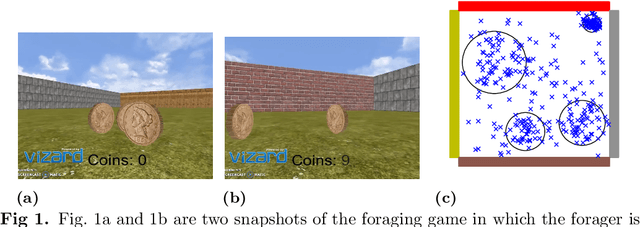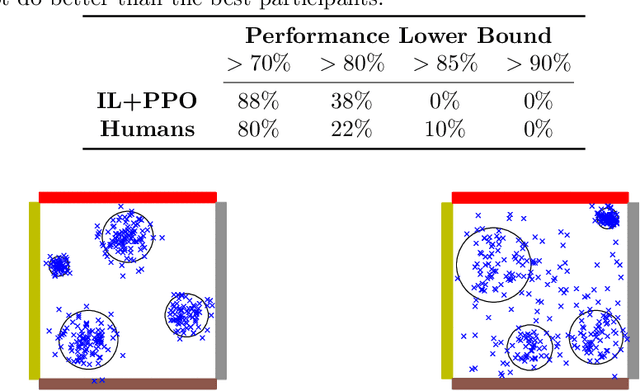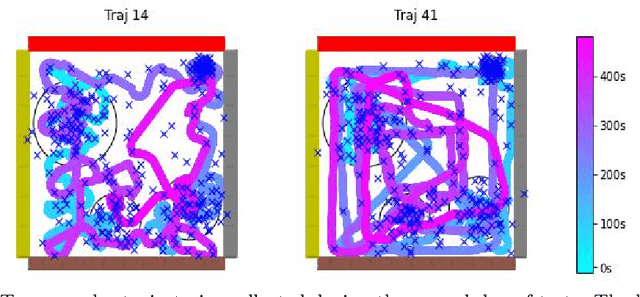Learning from humans: combining imitation and deep reinforcement learning to accomplish human-level performance on a virtual foraging task
Paper and Code
Mar 30, 2022



We develop a method to learn bio-inspired foraging policies using human data. We conduct an experiment where humans are virtually immersed in an open field foraging environment and are trained to collect the highest amount of rewards. A Markov Decision Process (MDP) framework is introduced to model the human decision dynamics. Then, Imitation Learning (IL) based on maximum likelihood estimation is used to train Neural Networks (NN) that map human decisions to observed states. The results show that passive imitation substantially underperforms humans. We further refine the human-inspired policies via Reinforcement Learning (RL), using on-policy algorithms that are more suitable to learn from pre-trained networks. We show that the combination of IL and RL can match human results and that good performance strongly depends on an egocentric representation of the environment. The developed methodology can be used to efficiently learn policies for unmanned vehicles which have to solve missions in an open field environment.
 Add to Chrome
Add to Chrome Add to Firefox
Add to Firefox Add to Edge
Add to Edge